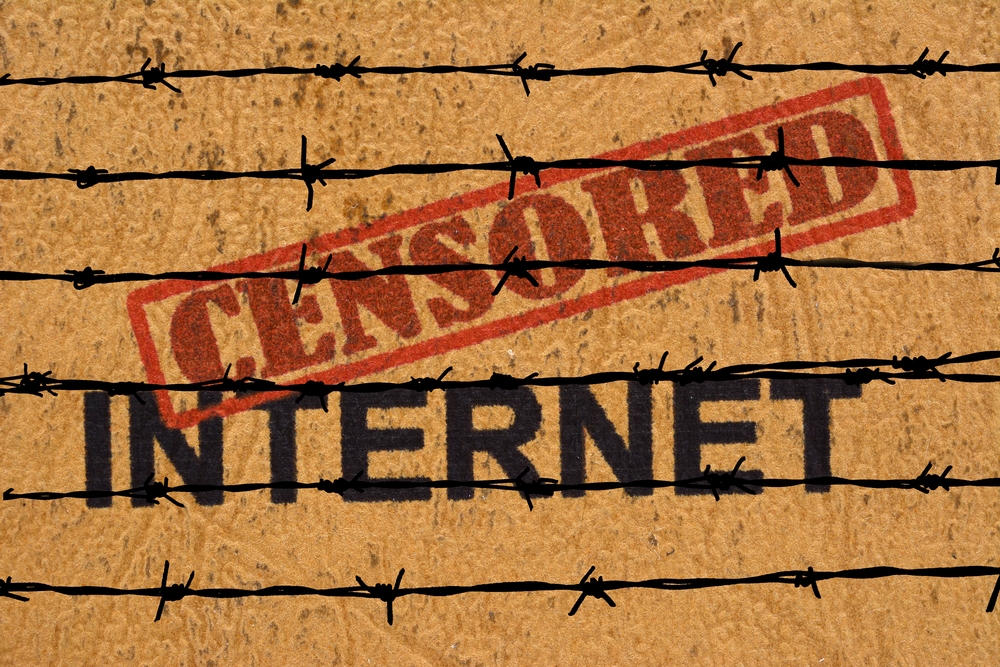 [dc]”F[/dc]reedom of Speech” is the overarching theme of the 2016 electoral season. In fact, it may well be the dominant theme of the decade. Social media, websites, email and the Internet have dramatically changed how people find information. Newspapers, television, magazines, radio – the traditional outlets are no longer the gatekeepers determining the parameters of the national dialogue.
[dc]”F[/dc]reedom of Speech” is the overarching theme of the 2016 electoral season. In fact, it may well be the dominant theme of the decade. Social media, websites, email and the Internet have dramatically changed how people find information. Newspapers, television, magazines, radio – the traditional outlets are no longer the gatekeepers determining the parameters of the national dialogue.
It is more efficient and much, much cheaper, to post a viral video for free on YouTube than to try to get screen time on the 11 o’clock news or a mention in a local newspaper. Donald Trump can kick the Washington Post reporters off his airplane if its writers offend him, knowing that alt-right outlets and his social media acolytes will spread his message much more efficiently online.
The tradition of trying to win elections through large media buys is nearly over, and, if done right, a savvy candidate can win an election for pennies on the dollar.
Needless to say, the mainstream media, which had already been losing revenue has lost its power to shape national opinion. In what may be its swan song, a majority of the national media has publicly decided to abandon any semblance of electoral neutrality and has decided to go all in for Hillary Clinton. Social media, however, has not taken this kindly with many accepting this confirmation of bias as yet another reason to abandon these outlets as sources of objective news.
On October 1, 2016, unless Congress acts, the United States will irrevocably cede control of the Internet address system to the international community. Many people are confused about what this means, but let me explain it this way.
In the mid-1990s as a college student, I was able to observe the birth of the World Wide Web and HTML. This was what allowed you to use a web browser to type in an address and then click on blue underlined “hyperlinks” that would take you from website to website. Before that, you could use a closed online community like CompuServe, Prodigy, or America Online which were self-contained, or you had to use clumsy monochrome software called Telnet and type in long “IP” addresses to find online organizations. If you can imagine, would be like trying to phone somebody but not having their name saved in your smartphone.
Then along came the brilliant “dot com” invention that connected common names or company names to the web numbers. Now you could just type in the name of the website you wanted to visit. This made the Internet a whole lot easier to use. A non-profit organization was set up to help connect the web names to the numbers, and you would pay an annual fee to a “name registrar” if you had a website. That is why you can type in ReligiousLiberty.TV instead of 104.31.85.20 (which doesn’t take you to our site but rather the host company). Without this name, it would be a lot harder to find us.
After this, directories and search engines like Yahoo and Google came along, and the rest is history. Well, history up until now.
This Saturday, October 1, the United States is scheduled to give up its unilateral control of the Internet Corporation for Assigned Names and Number (ICANN) to the “international community.” The mainstream media and political elites who count on cost as a bar to competition are falling over themselves in support of this transfer which, at worst, return them to the good old days of the dominance of paper publications and television stations. However, independent news outlets and web entrepreneurs are justifiably concerned.
While there is no immediate plan to take down the system of internet names and addresses any time soon, it is clear that the high standard of freedom of speech in America is certainly not shared by most of the rest of the world. In some countries, offensive speech can lead to fines, bans, imprisonment, or even death depending on the jurisdiction. Many nations believe they have an obligation to eliminate certain types of speech online, for instance, Facebook is currently in a legal battle with Germany over what members can and cannot post. With international control of ICANN, all it would take to incapacitate a website would be to delist its web address – something that the U.S. is loathe to do but which an international organization would feel compelled to do. While the information could still be made available via IP addresses, you would have to know the number and the free speech we now enjoy would take on a distinctly “underground” tone.
Social media giants, such as Facebook, Twitter, YouTube, Google, and others will face increasing international pressure to police the content of their sites to avoid being delisted or blocked. The result would be a segmented web where personal opinions would lose their place on the international stage.
Congress has two more days to act to save free speech, but in a year when the Internet has been the biggest thorn in the side of both parties, my guess is that Congress will tragically let control of ICANN slide away. The world deserves the full range of First Amendment protections of freedom of speech, freedom of the press, free exercise of religion, and other freedoms that only the United States is constitutionally obligated to maintain.
Illustration: DepositPhotos / alexskopje

